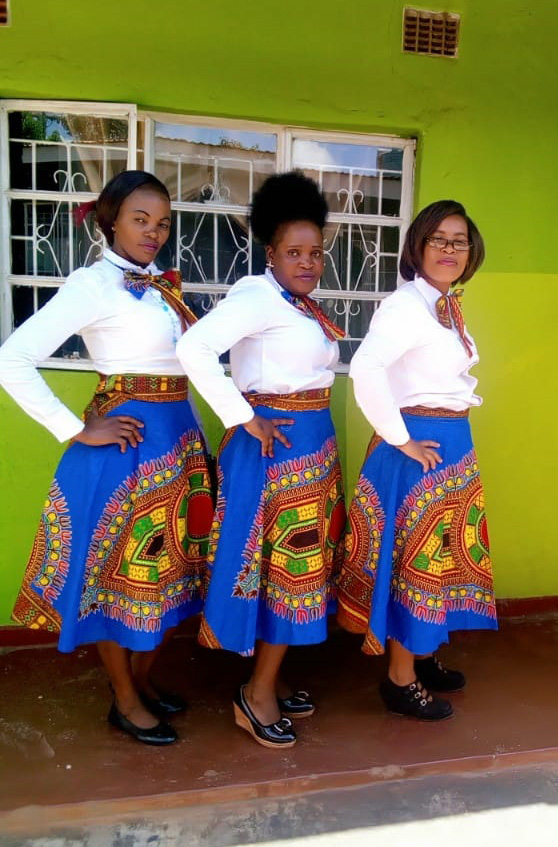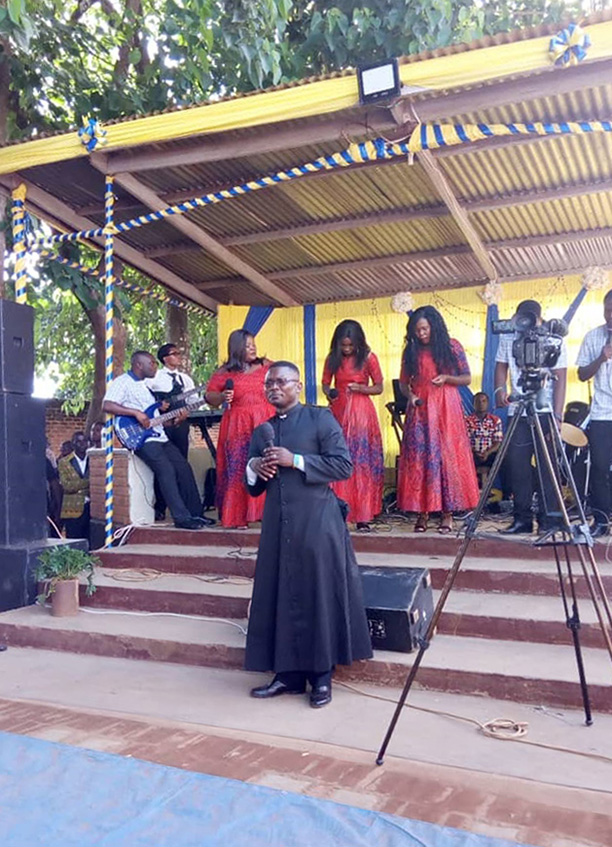I arrived in Malawi in August 2010 for missionary service. After almost three months learning English in Lusaka, Zambia, I was assigned to Lirangwe parish. Very quickly I became familiar with Chichewa, the local language, which allowed me to get in touch with the missionary reality of the area. The direct contact with the youth made me realise that there was a need to develop a new approach to youth ministry. Malawi is not as poor as people think; in fact, a concept has been passed down from generation to generation, that being Malawian means being poor. This, unfortunately, blocks any spirit of initiative among young people who believe they are doomed to be poor. As a result, there is a certain laziness among them, which ultimately gives the impression that they are irresponsible.
In 2012, after my ordination to the priesthood, I returned to the same parish. As I was in charge of youth ministry, I felt that we needed to find a new approach to attract young people. That is where Metanoia was born, a group of young people whose aim was to put an end to the spirit of poverty, laziness and irresponsibility. In fact, "Metanoia" means change or conversion. The name of the group was adopted by all, as a willingness on the part of our young people to see life differently. The slogan chosen was "zero poverty, zero laziness, zero irresponsibility". We had organized certain activities such as the youth camp, a privileged moment of prayer and teaching for our young people; formation in various areas of life, retreats, some initiatives of economic self-sufficiency such as field work; moments of entertainment such as sports, dance, theatre, etc. Thus, from each activity a different group was formed: Metanoia youth council, Metanoia vocation group, Metanoia football and netball clubs, drama group, training group.


In 2014, when the Comboni Missionaries of Malawi and Zambia celebrated 40 years of missionary presence, an idea came to me to adapt one of Comboni's songs from Lingala into Chichewa. As I had taught it to the choir, scribbling on the few self-taught notes of the guitar, it aroused the curiosity of the young people, who had discovered that I sang well and they had encouraged me. After the party, I had adapted another song to the local language, then little by little I took the risk and started composing little songs and it worked well. Eventually singing became a passion for me. We had started a small group, which had grown, it was the first Metanoia choir in the parish. Then we created an orchestra to entertain the young people, the Metanoia band. Then we started recording our songs and spreading them to other parishes and dioceses.
People's curiosity was growing more and more because the tone of our songs seemed to be a novelty, a mixture of Congo-Malawi. Moreover, the use of the guitar was practically new in this area. With the support of the provincial council, some musical instruments had been bought and blessed by the Archbishop of Blantyre. Metanoia had then become a tool for evangelization through song. Many young people, even non-Catholics, became interested in it and from there, a whole philosophy of reintegration and orientation of young people had begun. Many were reconciled with God through the sacraments of marriage and other sacraments; a good number of young people became involved in religious life, some others went back to school and learned a trade, etc.
Young people have become the centre of reference for youth ministry and liturgy. The animation of liturgical celebrations, the recording of songs (audio-video), religious concerts were part of my pastoral agenda until 2016 when I was sent to Rome to do the Master's degree in Philosophy in view of teaching at the Postulancy. When the provincial had approached me with the proposal, the temptation to say no was great, but in reality the sense of self-denial and the joy of having another experience had prevailed over the small temptation. I had to leave, leaving the young people worried but not desperate, because everything was being done to ensure the continuity of the activities. They were well equipped to do so; today they continue to do so with the help of the other confreres.
From Lilongwe/Malawi
F. Jean-Marie Noël Munketalingi
In 2012, after my ordination to the priesthood, I returned to the same parish. As I was in charge of youth ministry, I felt that we needed to find a new approach to attract young people. That is where Metanoia was born, a group of young people whose aim was to put an end to the spirit of poverty, laziness and irresponsibility. In fact, "Metanoia" means change or conversion. The name of the group was adopted by all, as a willingness on the part of our young people to see life differently. The slogan chosen was "zero poverty, zero laziness, zero irresponsibility". We had organized certain activities such as the youth camp, a privileged moment of prayer and teaching for our young people; formation in various areas of life, retreats, some initiatives of economic self-sufficiency such as field work; moments of entertainment such as sports, dance, theatre, etc. Thus, from each activity a different group was formed: Metanoia youth council, Metanoia vocation group, Metanoia football and netball clubs, drama group, training group.


In 2014, when the Comboni Missionaries of Malawi and Zambia celebrated 40 years of missionary presence, an idea came to me to adapt one of Comboni's songs from Lingala into Chichewa. As I had taught it to the choir, scribbling on the few self-taught notes of the guitar, it aroused the curiosity of the young people, who had discovered that I sang well and they had encouraged me. After the party, I had adapted another song to the local language, then little by little I took the risk and started composing little songs and it worked well. Eventually singing became a passion for me. We had started a small group, which had grown, it was the first Metanoia choir in the parish. Then we created an orchestra to entertain the young people, the Metanoia band. Then we started recording our songs and spreading them to other parishes and dioceses.
People's curiosity was growing more and more because the tone of our songs seemed to be a novelty, a mixture of Congo-Malawi. Moreover, the use of the guitar was practically new in this area. With the support of the provincial council, some musical instruments had been bought and blessed by the Archbishop of Blantyre. Metanoia had then become a tool for evangelization through song. Many young people, even non-Catholics, became interested in it and from there, a whole philosophy of reintegration and orientation of young people had begun. Many were reconciled with God through the sacraments of marriage and other sacraments; a good number of young people became involved in religious life, some others went back to school and learned a trade, etc.
Young people have become the centre of reference for youth ministry and liturgy. The animation of liturgical celebrations, the recording of songs (audio-video), religious concerts were part of my pastoral agenda until 2016 when I was sent to Rome to do the Master's degree in Philosophy in view of teaching at the Postulancy. When the provincial had approached me with the proposal, the temptation to say no was great, but in reality the sense of self-denial and the joy of having another experience had prevailed over the small temptation. I had to leave, leaving the young people worried but not desperate, because everything was being done to ensure the continuity of the activities. They were well equipped to do so; today they continue to do so with the help of the other confreres.
From Lilongwe/Malawi
F. Jean-Marie Noël Munketalingi










































Share this article